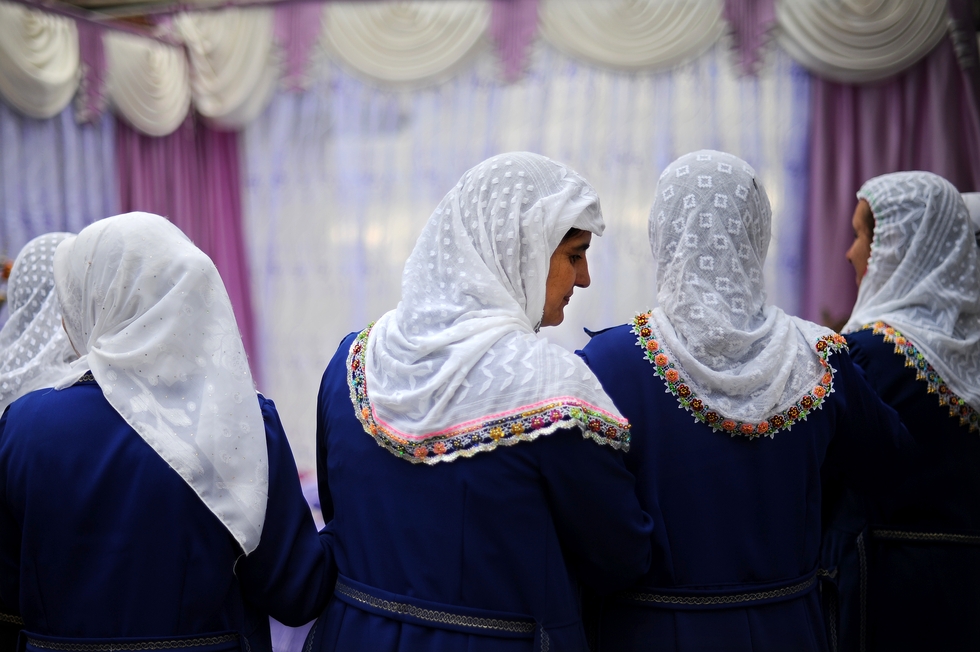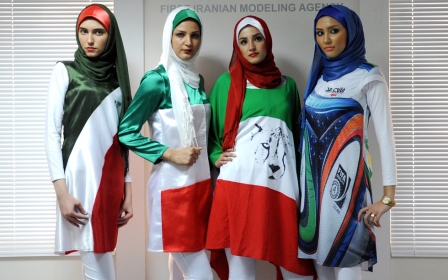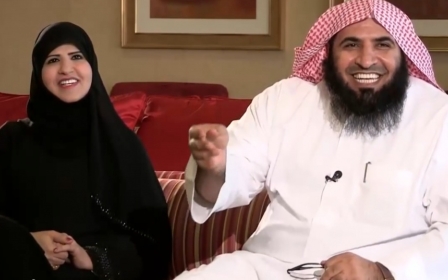Bulgaria takes first step to outlawing veils and headscarves

Bulgaria’s MPs have approved the first reading of a bill that would ban the public wearing of clothing that completely or partly covers the face, as proposed by a nationalist party which has called for the outlawing of the burqa and Islamic head scarves.
The country's National Assembly on Wednesday voted 108 in favour to eight against to approve the bill, brought to parliament by the nationalist coalition Patriotic Front, which supports the government.
According to the Sofia Globe website, the ban would apply in national and local public facilities including schools, houses of worship, cultural institutions and parks, as well as government and local administration offices.
Covering the head, eyes, ears and mouth will be permitted only for health reasons, professional necessity and at sporting and cultural events, the website reported.
Those violating the ban would face fines of up to 100 euros for a first offence, with heavier penalties for repeat offenders including the withholding of benefits.
However, the wording of the ban was heavily criticised by some MPs. Tuncher Kardzhaliev, a member for the Movement for Rights and Freedoms (MRF), said the law as drafted would apply to beekeepers.
Lyutvi Mestan, the former MRF leader who now sits as an independent, told the Sofia Globe that the bill addressed a "sham problem" and was a sop to the Patriotic Front by the majority partner in government, the centre-right GERB.
The Patriotic Front defended the proposed ban, saying that the fact that very few women in Bulgaria were veiled did not mean that the country should wait until the numbers ran into the thousands.
Some areas of Bulgaria already have de facto bans on such clothing, including in Pazardzhik, Stara Zagora and Bourgas. The municipal council in Bulgaria’s second-largest city, Plovdiv, rejected a ban.
Right-wing parties in Bulgaria have warned of an influx of Muslim refugees via Turkey. Bulgarian Prime Minister Boyko Borissov last year said his country had "nothing against Muslims", but feared that an influx could put Bulgaria at risk of "radical change".
Bulgaria's Orthodox Church called on its government last year to not to let any more Muslim refugees into the country to prevent an "invasion".
About 13 percent of Bulgaria's population are Muslims, including ethnic Turks, descendants of Bulgarians who converted to Islam during five centuries of Ottoman rule, and some Roma.
More than 30,000 people were recorded attempting to pass through Bulgaria from Turkey last year, despite a fence being erected on parts of the border, and more may have passed through undetected.
However refugees are warned not to try to cross into Bulgaria, the EU's poorest country, amid widespread reports of discrimination and mistreatment.
If the ban is implemented, Bulgaria would join a number of European countries that have banned or partially outlawed the veil or head dress.
France has banned face-covering veils and forbids headscarves and other religious symbols in schools and public buildings.
In May, the Dutch government implemented a partial ban on veils in schools, hospitals and on public transport, with transgressions subject to fines.
A law banning the full-face veil came into force in Belgium in 2011.
New MEE newsletter: Jerusalem Dispatch
Sign up to get the latest insights and analysis on Israel-Palestine, alongside Turkey Unpacked and other MEE newsletters
Middle East Eye delivers independent and unrivalled coverage and analysis of the Middle East, North Africa and beyond. To learn more about republishing this content and the associated fees, please fill out this form. More about MEE can be found here.




